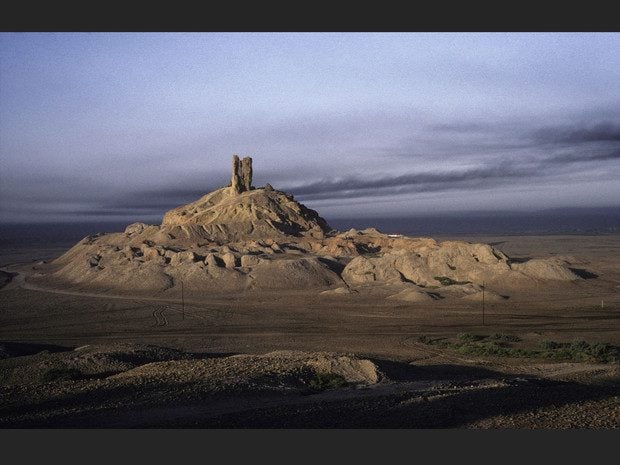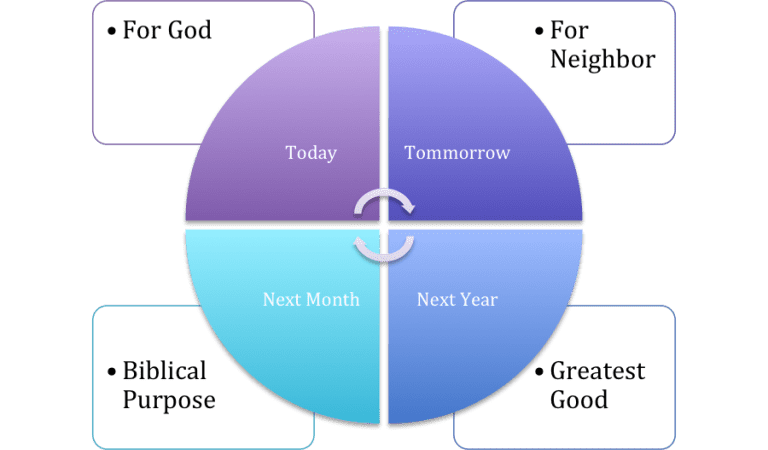
What’s the Purpose of My Work?
This is a question I hear frequently. In a recent focus group of professionals, purpose was the number 1 concern/question participants had about their work. “Money as the chief end of work” also was a concern and source of angst as group members reflected on the culture of the companies where they are employed. After a delivering a talk on calling, an audience member came to me and said, I can’t imagine how my work has anything to do with the purposes of God. What’s the purpose of my work? Getting to an answer begins with a tale of two cities.
Choosing Your City
The arc of the biblical story is the tension between two cities. These two cities represent two very different approaches to work.
The City Called Babel: The first city is Babel. Her citizens said:
“Come, let us build ourselves a city and a tower with its top in the heavens, and let us make a name for ourselves, lest we be dispersed over the face of the whole earth. (Genesis 11:” Working for Babel is work done exclusively for ourselves. If you read on in Genesis 11, you’ll see it doesn’t work out. The ambitious citizens of that ancient city are confused and then scattered over the earth. The Babel approach to work always leads to the fragmentation and insecurity which we were working to avoid in the first place. Working for Babel makes the modern workplace an environment where our sense of self is fragile and our sense of human connection is fragmented.
The City Called House of Peace: The other city is New Jerusalem (Jerusalem = house of peace). It is a place of promised wholeness, safety, and joy. “
By its light will the nations walk, and the kings of the earth will bring their glory into it, and its gates will never be shut by day—and there will be no night there. They will bring into it the glory and the honor of the nations.” (Revelation 21:23-26)
The glory and honor of the nations are the fruits of human labor, the best of each people group’s production and culture. Individual work is not swept away, ignored or demeaned. Work is offered as a gift to honor God. Individual contributions and competencies are celebrated around a unified center. Work in the New Jerusalem mode gets us the glory, safety, and connection we for which we long.
Your Calling, Should You Accept It
Our calling is to move Babel-work to Jerusalem-work. Here’s a one-year plan to get there.
Today: My calling at work today is to do my work for God, to consciously offer it to him in the way I think and pray about my job. (See Colossians 3:23-24).
Tomorrow: My calling at work tomorrow is to work for my neighbor–all the people I interface with through my work. The work world affords the opportunity for us to impact 100’s sometimes 1000’s of neighbors. Whatever we do—if we help or empower others, if we produce goods that are really good, if we provide services that really serve, then our work benefits our neighbors.
Next Month: My calling over the next 30 days is to learn to look at my work as an expression of God’s story. The Bible shows us two kinds of work, creative work, where we build new things, and redemptive work, where we protect and heal. Sometimes our work is both. Finding your work in the thrust of the bible’s story connects it with the transcendent, it restores some of the meaning that’s been lost in our rush to make a living.
Next Year: My calling over the next year is to answer the greatest good question. “Given who I am and what I can do well, how can I maximize my capacities for the greatest good of the most people? This is a question that can help us identify what consultant Bobb Biehl calls our life work. Once identified we can execute a plan to get there.
“Who For” Before “What”
What’s the purpose of my work? The answer to that question starts with “who will you work for?” Your answer will steer you on a course to glory or ruin. There are at least two benefits of doing our work for God: 1) he takes on the responsibility to guide us to the work we are supposed to do, and 2) he promises to provide for us the opportunities and character qualities we need to succeed at the assignments he gives us. Jerusalem beats Babel every time.
Other Posts in This Series:
- Success = Finding and Following Your Calling
- Myths about Calling Part 1 and Part 2
- 2 Callings are Better than 1.
About the Author:
Dr. Chip Roper writes Marketplace Faith from New York City, where he is the director of Marketplace Engagement at the New York City Leadership Center. Chip is driven to turn the daily grind into a spiritual adventure. In service of this vision to empower individuals to approach their work with a keen sense of vocation, he aims to end the “stunning silence of the Church regarding life at work.” He is convinced that a central piece of God’s plan for any city or community is the work that people do each day. You can learn more about him here. Chip is available for speaking, consulting, and coaching engagements. Inquire via his email: [email protected].
Pic: http://media-cache-ec0.pinimg.com/736x/83/14/5a/83145a929586ca0f9dee88418d6dc247.jpg
No copy write prohibitions listed.














